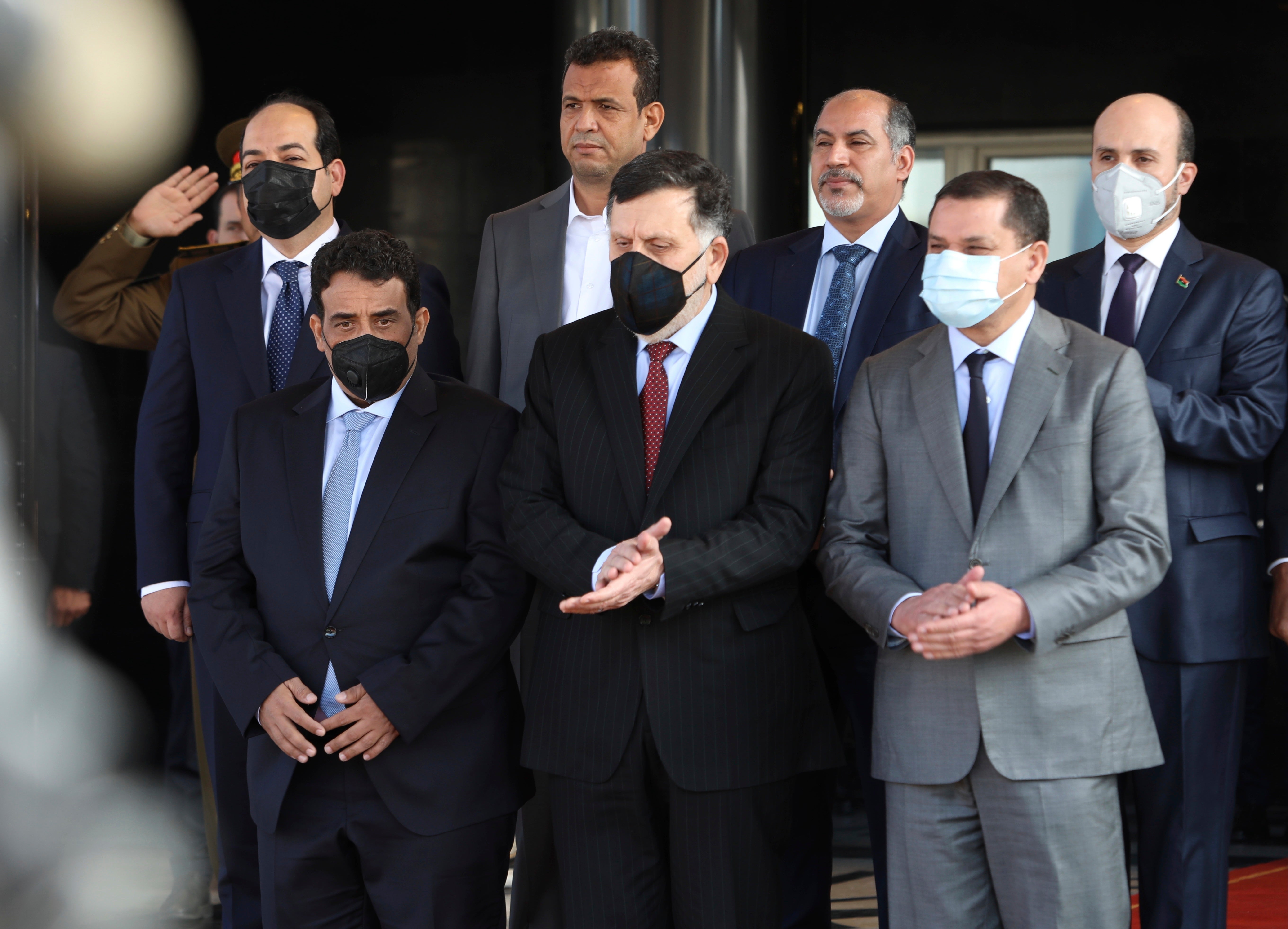Interim Libya government assumes power after smooth handover
A transitional government in conflict-stricken Libya has taken power in the capital Tripoli, officially beginning a tenure designed to end with democratic elections late this year

Your support helps us to tell the story
From reproductive rights to climate change to Big Tech, The Independent is on the ground when the story is developing. Whether it's investigating the financials of Elon Musk's pro-Trump PAC or producing our latest documentary, 'The A Word', which shines a light on the American women fighting for reproductive rights, we know how important it is to parse out the facts from the messaging.
At such a critical moment in US history, we need reporters on the ground. Your donation allows us to keep sending journalists to speak to both sides of the story.
The Independent is trusted by Americans across the entire political spectrum. And unlike many other quality news outlets, we choose not to lock Americans out of our reporting and analysis with paywalls. We believe quality journalism should be available to everyone, paid for by those who can afford it.
Your support makes all the difference.A transitional government in conflict-stricken Libya took power in the capital Tripoli on Tuesday, officially beginning a tenure designed to end with democratic elections late this year.
Fayez Sarraj, head of the outgoing United Nations-supported administration in western Libya, transferred power to Prime Minister Abdul Hamid Dbeibah, and Mohammad Younes Menfi, who chairs a three-member Presidential Council.
The ceremony in Tripoli came a day after Dbeibah and his Cabinet were sworn in before lawmakers and Libya’s top judges in the eastern town of Tobruk. Lawmakers had already endorsed the interim government last week amid international pressure to implement a U.N.-brokered political roadmap.
That roadmap, agreed to by a U.N.-picked Libyan political forum last year, set Dec. 24 for general elections in the oil-rich country.
The unexpectedly smooth transfer of power is seen as an important step to end the chaos in the North African country. The lack of a proper handover among legislators in 2014 was a major factor in the split of Libya’s institutions.
“Today is yet another historic day for Libya,” Claudia Gazzini, a Libya expert at the International Crisis Group, said of Tuesday’s handover. The interim government, however, would face huge challenges, mainly avoiding political impasse or a relapse of war, she said.
The presence of thousands of foreign forces and mercenaries is another major challenge. The U.N. Security Council last week called for countries with troops and mercenaries in Libya to withdraw them “without delay.”
The U.N. has estimated that there are 20,000 foreign fighters in Libya, including Syrians, Turkish Sudanese and Russians brought to the country by the rival sides.
Libya was plunged into chaos when a NATO-backed uprising in 2011 toppled longtime ruler Moammar Gadhafi, who was later killed. The country was in recent years split between rival east- and west-based administrations, each backed by armed groups and foreign governments.